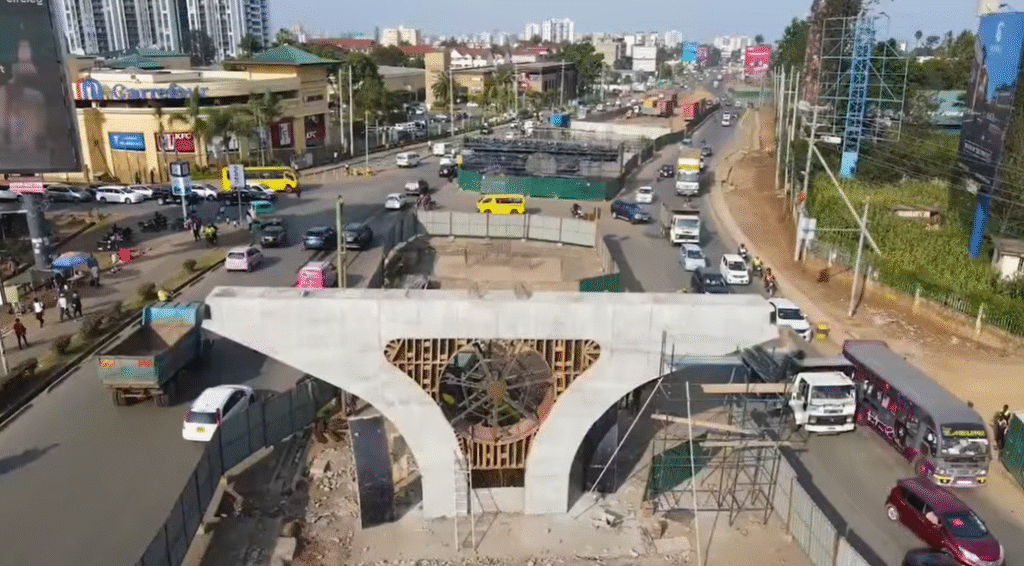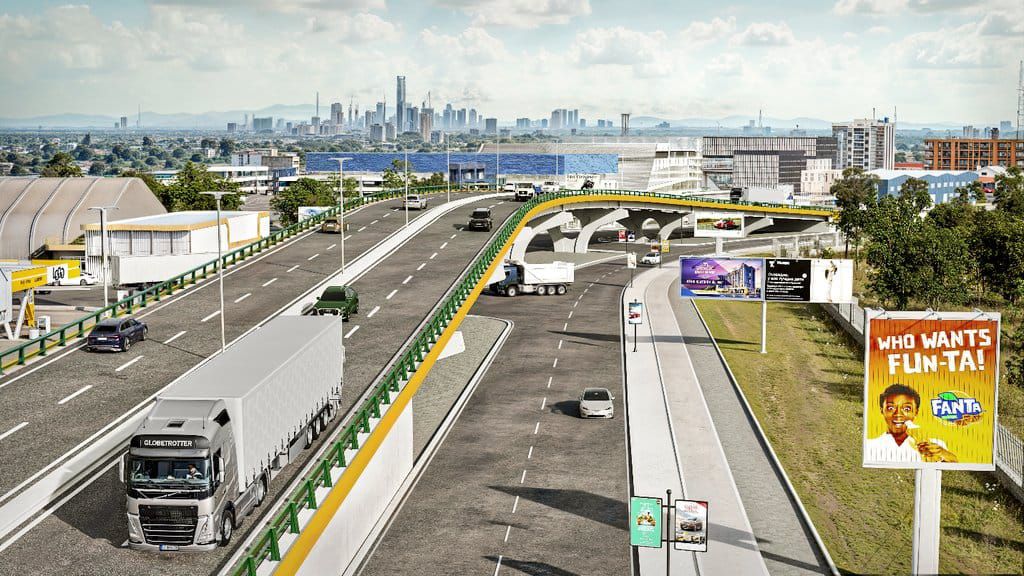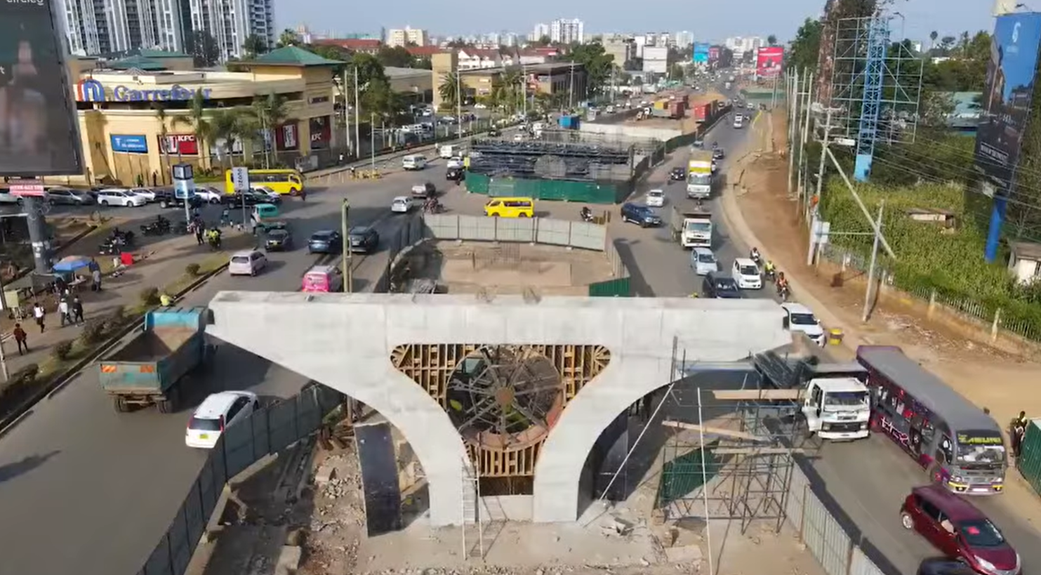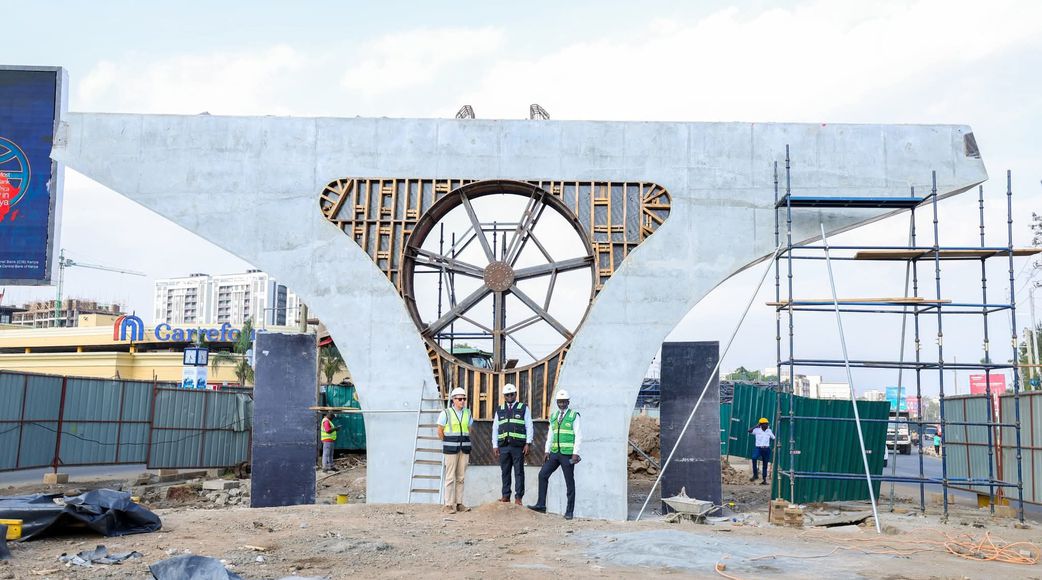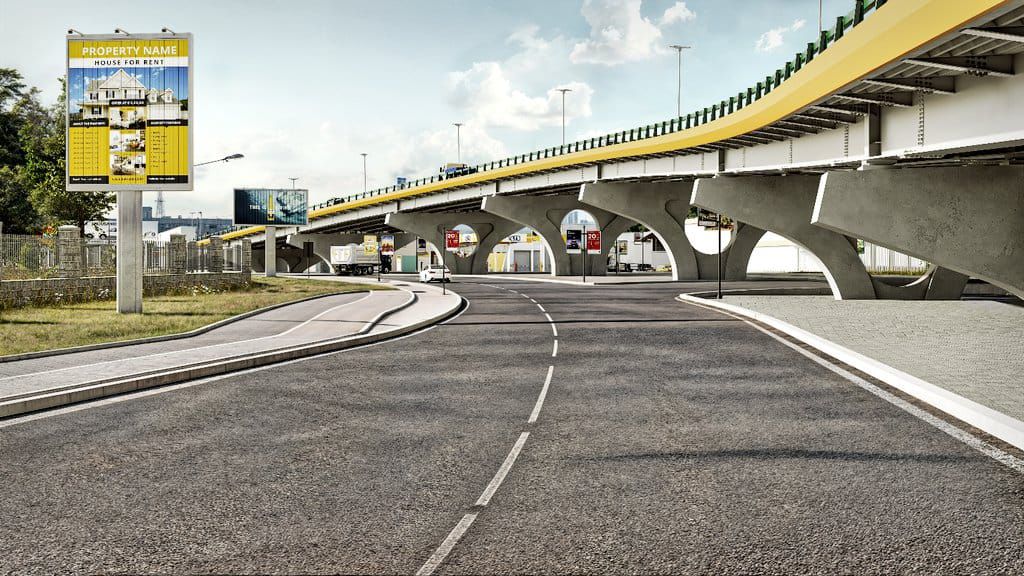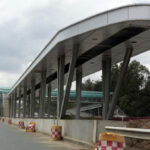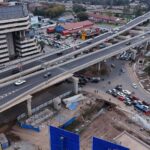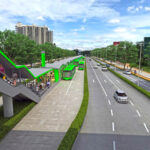Nairobi Elevated Road at Junction Mall: First Look at the Sh3.5B Project
Nairobi has unveiled plans for a Sh3.5 billion elevated road at Junction Mall, a bold move to address congestion and improve urban mobility. The project marks a new chapter in Kenya’s infrastructure journey.
Nairobi’s Traffic Puzzle: Ngong Road Project
Nairobi’s traffic congestion is more than just a daily nuisance—it’s a major economic drain. Commuters spend hours in traffic, businesses lose productivity, and the city struggles to match its rapid urban growth with modern infrastructure. To address this, the government has announced the construction of a Nairobi elevated road at Junction Mall, a KSh3.5 billion project designed to ease congestion along Ngong Road and the surrounding areas.
This project comes on the heels of other major Nairobi traffic solutions, including the expansion of Ngong Road, the Nairobi Expressway, and plans for mass transit systems. If executed effectively, the elevated road will complement ongoing Kenya infrastructure projects, creating a more integrated and efficient Nairobi urban road network.
Project Details: Sh3.5B Junction Mall Elevated Road
The Junction Mall road upgrade will see the construction of a modern elevated roadway above one of the city’s busiest intersections. Valued at KSh3.5 billion and financed by the Spanish Corporate International Fund (FIEM), the project is expected to significantly reduce traffic bottlenecks, especially during peak hours when motorists heading to Dagoretti, Karen, and Westlands converge.
Key features of the project include:
- A dual-lane elevated section above Junction Mall.
- Improved pedestrian walkways and crossings.
- Integration with existing Ngong Road upgrades.
- Smart traffic signals for smoother flow.
According to the Ministry of Roads and Transport, the Nairobi elevated road will be completed within two years, making it one of the fastest-tracked Nairobi transport development projects in recent years.
Why the Elevated Road Matters for Nairobi
Traffic congestion has long been cited as one of Nairobi’s most pressing urban challenges. Due to road congestion, studies estimate that Nairobi loses billions in fuel, time, and productivity annually.
The benefits of Nairobi’s new elevated road for traffic congestion are clear:
- Faster connectivity between Ngong Road and major city routes.
- Reduced travel time for motorists and public transport operators.
- Enhanced safety for pedestrians and cyclists.
- A cleaner environment from reduced vehicle idling.
This project mirrors the city’s broader agenda to modernise roads and reduce gridlock, as highlighted in Nairobi’s Bold Plan to Decongest Nairobi and Beat Traffic Jams.
Comparing Road and Transit Solutions: Lessons from Abroad
While elevated roads provide short-term relief, urban experts argue that mass transit systems hold the key to long-term solutions. Nairobi has already shown interest in learning from international examples. For instance, the city has looked at Colombia’s BRT model as a blueprint for its rapid transit ambitions.
Unlike elevated highways, BRT systems prioritise public transport, moving people more efficiently while reducing the number of private cars on the road. Therefore, the new Nairobi elevated road is expected to complement, rather than replace, such transit innovations.
Cost and Timeline of the Sh3.5B Project
The government has allocated KSh3.5 billion for the Junction Mall elevated road, making it one of the most expensive Nairobi infrastructure upgrades in recent years.
- Budget: KSh3.5 billion, partly funded through government allocations and Spanish partnerships.
- Timeline: Expected completion within 24 months.
- Scope: Construction, smart traffic system installations, pedestrian facilities, and integration with Ngong Road expansion.
Authorities such as the Kenya Urban Roads Authority (KURA) have emphasised that they will adhere to strict timelines to prevent the delays that have beset other infrastructure projects in Kenya.
Anticipated Impact on Commuters
Once complete, the Nairobi Junction Mall elevated road will transform daily commuting in several ways:
- Reduced gridlock: Motorists using Ngong Road, Dagoretti, and adjacent areas will save hours previously lost in traffic.
- Improved public transport: Matatus and buses will benefit from shorter travel times, improving service efficiency.
- Business boost: Shops, offices, and malls along Ngong Road will be more accessible, likely spurring economic activity.
- Urban safety: With better pedestrian crossings and traffic separation, accident rates are expected to decline.
The project promises a visible improvement in traffic management for city dwellers who have long endured bottlenecks at Junction Mall.
Nairobi’s Broader Vision for Transport Development
The elevated road is not an isolated effort—it fits into the city’s larger blueprint for Nairobi traffic solutions. Recent and ongoing projects include:
- The Nairobi Expressway, linking Mlolongo to Westlands.
- The expansion of Ngong Road, easing connectivity to Karen and Dagoretti.
- The planned Bus Rapid Transit (BRT) systems are modelled on global best practices.
- New Ring roads and bypasses, designed to divert long-distance traffic from the city centre.
This broader vision reflects Nairobi’s determination to modernise its urban road network and align with Kenya’s urban transport development goals.
Challenges and Concerns
Despite its promise, the KSh3.5bn elevated road project is not without challenges:
- Land acquisition: Road expansions in Nairobi often face land ownership and compensation disputes.
- Funding risks: Cost escalations and inflation have historically slowed major Nairobi infrastructure projects.
- Sustainability questions: Critics argue that prioritising roads over public transit may only provide temporary relief until congestion returns.
The government must balance road construction with mass transit, cycling, and pedestrian-friendly projects to ensure long-term impact.
What’s Next for Nairobi’s Road Infrastructure?
With the Nairobi elevated road underway, city planners are looking at additional solutions to keep pace with urban growth. Discussions about integrating elevated roadways, smart traffic management, and sustainable mobility options into Nairobi’s evolving modernisation projects are ongoing.
The combination of elevated roads, mass transit systems, and urban planning reforms could be the key to unlocking Nairobi’s future as a more connected, liveable city.
Stay Updated on Industry Trends
The Nairobi Junction Mall elevated road is more than just a traffic solution—it signals Kenya’s determination to modernise its capital and position itself as a hub for East Africa’s infrastructure growth.
For more updates on Kenya infrastructure projects, transport development, and strategies to ease congestion, visit ConstructionFrontier.com.

